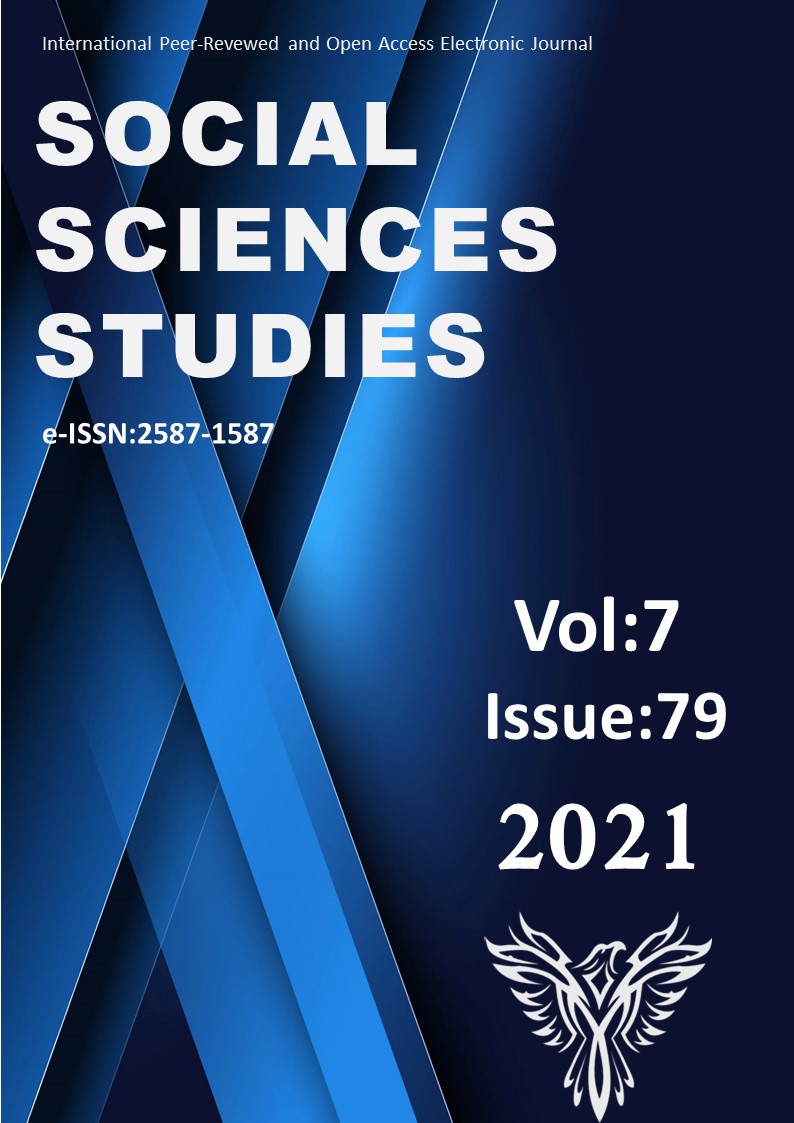OKUL ÖNCESİ ÖĞRETMENLİĞİ DÖRDÜNCÜ SINIF ÖĞRETMEN ADAYLARININ ARAŞTIRMA PROJESİ DERSİNE YÖNELİK GÖRÜŞLERİNİN İNCELENMESİ
Author :
Abstract
Bu araştırmanın amacı, okul öncesi öğretmenliği bölümü dördüncü sınıf öğretmen adaylarının araştırma projesi dersinde yaşadıkları sorunlara yönelik görüşlerini derinlemesine incelemek ve bu sorunların üstesinden gelebilmek için bazı çözüm yolları ortaya koymaktır. Bu amaç çerçevesinde araştırmacılar araştırma boyunca “1. Okul öncesi öğretmen adaylarının Araştırma Projesi dersine ilişkin görüşleri nelerdir?”, “2. Okul öncesi öğretmen adaylarının Araştırma Projesi dersinin uzaktan eğitim yoluyla öğretilmesine ilişkin görüşleri nelerdir?”, “3. Okul öncesi öğretmen adaylarının Araştırma Projesi dersi için konu seçerken karşılaştıkları sorunlar nelerdir?” ve “4. Okul öncesi öğretmen adaylarının Araştırma Projesi dersinde karşılaşılan sorunların çözümüne yönelik önerileri nelerdir?” sorularına yanıt aramaya çalışmışlardır. Araştırma nitel araştırma desenlerinden, olgubilim (fenomenoloji) deseni kullanılarak gerçekleştirilmiştir. Çalışma grubu, amaçlı örneklem yöntemi doğrultusunda kolay ulaşılabilir örnekleme tekniği kullanılarak seçilmiştir. Bu doğrultuda araştırmanın çalışma grubu 12 okul öncesi öğretmen adayından oluşmaktadır. Katılımcılar K1, K2, K3, K4…… ve K12 biçiminde kodlanmıştır. Veriler yarı yapılandırılmış görüşme formu ile toplanmıştır. Toplanan veriler betimsel analiz yöntemi ile çözümlenmiştir. Bu doğrultuda okul öncesi öğretmenliği dördüncü sınıf öğretmen adayları araştırma projesi dersine yönelik görüşlerini; 1. Duygusal düşüncelerini olumlu ve olumsuz olarak iki şekilde ifade etmişlerdir. 2. Dersin kazanımlarını ise bilimsel bir bakış açısı, aktif öğrenmeye teşvik, akademik alanda deneyim, kalıcı öğrenme ve pratiklik olarak sıralamışlardır. Araştırma Projesi dersinin uzaktan eğitim yoluyla öğretilmesine ilişkin görüşleri; dersten verim alamama, iletişim sorunu, kaynak ve hedef kitleye ulaşamama ve derse adapte olamama şeklinde sıralamışlardır. Araştırma Projesi dersi için konu seçerken karşılaştıkları problemleri; özgün konu, sınırlı kaynak, grup içi sorunlar, analiz, doğru bilgi, literatür taraması, kapsam genişliği ve konu seçiminde alan şeklinde sıralamışlardır. Son olarak katılımcılar derse yönelik 1. çalışma grubundaki kişi sayısı, 2. konu seçimi, 3. akademisyen desteği ve dönütü, 4. kitap okuma, 5. dersin öğretim programında bulunma zamanı gibi birtakım önerilerde bulunmuşlardır. Bulgular doğrultusunda araştırmacılar bu dersin daha etkili ve verimli bir şekilde işlenebilmesi için dersin programdaki yerinin son sınıfta olmaması gerektiği, konu seçiminde öğrencinin ilgisinin göz önünde bulundurulması gerektiği, çalışma grubunun mümkün olduğunca bireysel ya da en az kişi ile yapılması gerektiği, ders öncesi ön hazırlık niteliğinde uygulamalı bir çalışmanın akademisyen rehberliğinde uygulamalı bir şekilde öğrencilere aşamalı bir biçimde anlatılması gerektiği, dersin amacına yönelik kaynakları okumaları için yönlendirilme yapılması, akademisyen-öğrenci iletişiminin sürekliliği şeklinde birtakım sonuçsal önerilerde bulunmuşlardır.
Keywords
Abstract
This study examines preschool fourth-grade pre-service teachers' opinions about the research project course in depth. In line with these opinions, it is a qualitative study that aims to identify and support the problems they experience while taking this course and make possible suggestions to follow new ways for the problems they encounter in adapting to the class. A framework was created using the phenomenology design, one of the qualitative research designs of this research. Researchers tried to sought answers to the questions: "What are preschool teacher candidates' opinions about the Research Project course?" "What are Preschool Teachers' opinions about teaching Research Project course through distance education?" "What are the problems Preschool Teachers encounter while choosing a topic for the Research Project course?" and lastly, "What are the suggestions of Preschool Teachers for solving the problems encountered in the Research Project course? The study group was selected using easily accessible sampling technique in purposeful sampling strategies. Accordingly, the research study group consists of 12 preschool pre-service teachers. Participants were coded as K1, K2, K4 …… K12. Data were collected by semi-structured interview method. The collected data were analyzed by descriptive and content analysis method. The data obtained from the interviews were tabulated as codes and themes and presented in the findings section. In this regard, preschool teacher candidates for the fourth grade expressed their views on the research project course; 1. They stated their emotional thoughts in two ways as positive and negative. 2. They listed the gains of the class as a scientific perspective, encouragement to active learning, experience in the academic field, permanent knowledge and practicality. Views on teaching the Research Project course through distance education listed as not getting efficiency from the course, communication problem, not reaching the source and target audience and not being able to adapt to the class. The issues they encountered while choosing a topic for the Research Project course listed as the original subject, limited resources, group problems, analysis, correct information, literature review, breadth of scope and field selection. Finally, the participants made some suggestions for the lesson, such as the number of people in the 1st study group, the 2nd topic selection, the 3rd academician support and feedback, the 4th book reading, 5th the time of lesson curriculum. To teach this lesson more effectively and efficiently; in line with the findings, the researchers made some concluding suggestions such as the course should not have a place in the program in the last year, the interest of the student should be taken into account in the selection of the subject, the study group should be made individually, or with as few people as possible, in the pre-lesson preparation phase, explaining in order in an applied secretary under the guidance of an academic, to direct them reading the resources that are appropriate for the lesson and the continuity of academician student communication.





